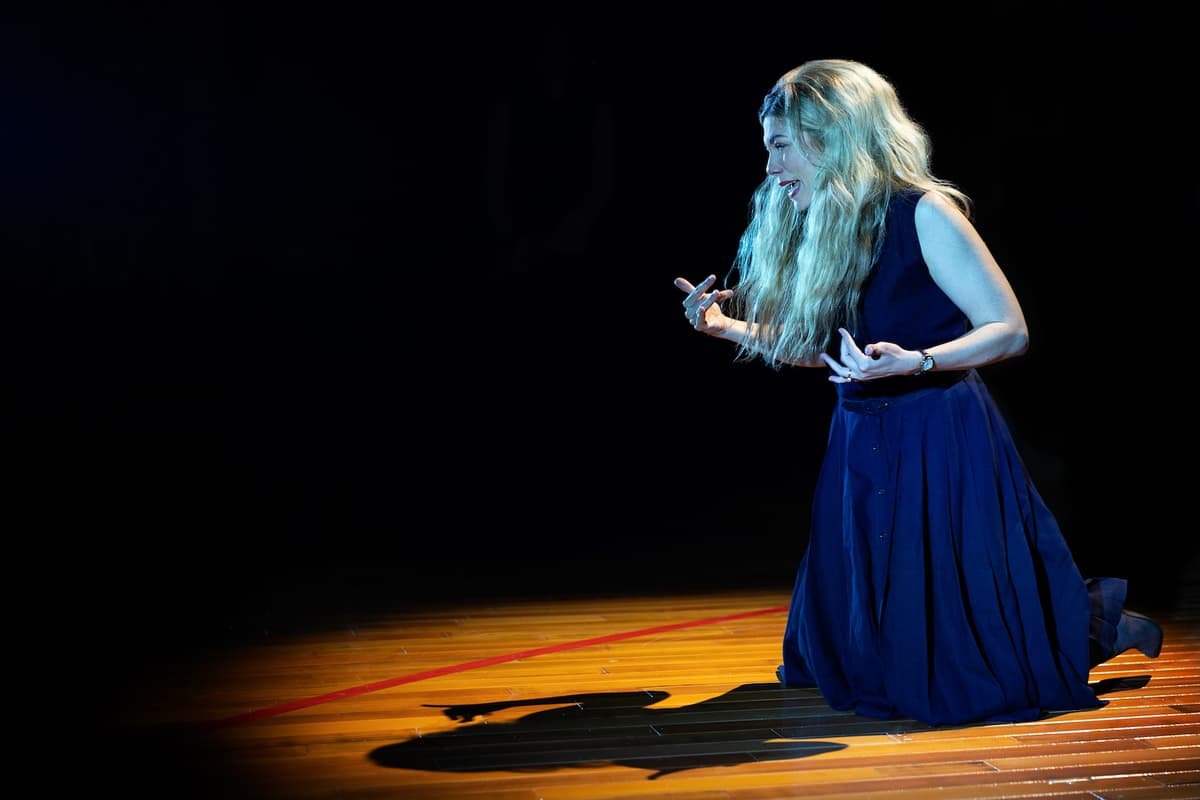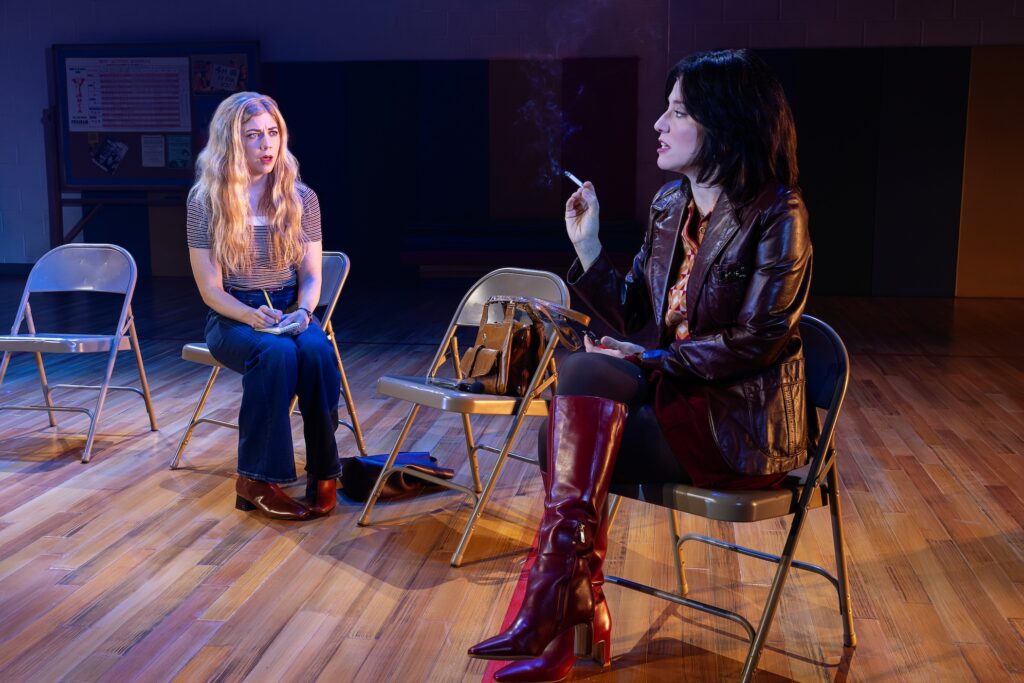‘Liberation’ Moves to Broadway at a Time of Perceived Setbacks for the Women’s Equity Movement
Since having its premiere at New York last February, Bess Wohl’s homage to second-wave feminism — inspired by the playwright’s late mother and like-minded women in the 1970s — has reaped wide acclaim.

It seemed inevitable that “Liberation,” Bess Wohl’s homage to second-wave feminism, would end up on Broadway. Since having its premiere at New York last February, the play — inspired by the playwright’s late mother, and like-minded women who campaigned for more equality and autonomy in the 1970s — has reaped wide acclaim, with many pointing to its timeliness, given the movement’s perceived setbacks in recent years.
I’ll admit that while I found the play absorbing, and movingly executed under Whitney White’s direction, I wasn’t one of its most ardent admirers. In retrospect, my relative lack of enthusiasm may have owed at least in part to having those setbacks shoved down my throat, often by women who, unlike those born in previous generations — or into different economic or cultural circumstances — have benefited greatly, overall, from pronounced efforts to serve our gender equitably.
On a second look, though, “Liberation,” which has been only slightly trimmed since its off-Broadway run, struck me as less preachy and more nuanced. Ms. White has retained her stellar cast, with Susannah Flood once again shifting back and forth between two roles, both named Lizzie; one, a journalist who in 1970 organizes a local “consciousness-raising group” for women, is obviously based on Ms. Wohl’s mom, while the other, a narrator who addresses us from the present, is essentially a stand-in for the playwright.
The other members of the CR group, to use their acronym for it, occasionally slip into our current era as well, so that the modern-day Lizzie can pepper them with questions. But most of the action takes place in the early ’70s, as the women are getting to know each other, with predictable conflicts and bonds developing.
They make up a fastidiously diverse group: Susan, or “Susie Hurricane,” as she introduces herself, is a tough-talking lesbian in her early 20s. Dora is slightly older and, initially, much more demure; she wanders into the first meeting by accident, mistaking it for a knitting circle. Isidora, approaching middle age, is sassier, an Italian woman who claims she married an American man solely to get a green card.

Margie is the senior member; her own husband recently retired, and she announces, “I’m here because I need things to get me out of the house so I don’t stab him to death.”
There are also, conspicuously, two black women, through whom Ms. Wohl underlines the point that the equal rights movement has not, historically, served women equally. Celeste is a single, Ivy League-educated editor, working on her own book focusing on women of her race — “whose resistance,” she declares, “is, in my opinion, overdue but as of yet completely unorganized.”
Joanne, in contrast, is married, with four sons; though not technically part of the group, she wanders into the recreational center where they hold meetings one day, looking for her 10-year-old’s backpack, and ends up bonding and then clashing with Celeste, whom she accuses of trying to impress and “blend in” with liberal white women. “Their rise depends on keeping us down,” Joanne warns her.
Ms. Wohl clearly isn’t espousing this view, but she is acknowledging both tensions and lingering injustices — as well as acknowledging, it seems, the limitations of her lived experience, as it’s referred to in modern parlance. There is, thankfully, a certain self-effacing humor in the way both Lizzies, who convey an authentic if occasionally cloying self-consciousness in Ms. Flood’s delivery, can tiptoe around or beg deference to Kristolyn Lloyd’s elegant Celeste and Kayla Davion’s warm, feisty Joanne.
The other performances are just as supple: Irena Sofia Lucio and Adina Verson are funny and fiery as, respectively, Isidora and Susan, while Audrey Corsa gradually reveals Dora’s frustration with the pressures and condescension she faces in her personal and professional lives. Betsy Aidem, a stage veteran who has appeared in several memorable Broadway productions in recent seasons, brings sharp comic timing to Margie and, in a late twist, poignance to another character who pops up briefly but meaningfully.
There’s also a male character, Bill, who enters at the end of the first act, basically representing Ms. Wohl’s father. Played by a spry Charlie Thurston, he’s handsome and charming, and he seems to want to support Lizzie, who can test his patience; when he proposes to her, for instance, she shuts him down with an expletive, pointing out that marriage is “a barbaric institution.”
Lizzie and Bill will marry, of course, just as Ms. Wohl’s parents and the playwright, who has three children of her own, did. If “Liberation” recognizes the challenges that marriage and motherhood can pose to women — and proposes that it can feel like progress made on our behalf is “all slipping away,” as the narrator puts it early on — the play is ultimately, and refreshingly, more of a tribute than a lament.

